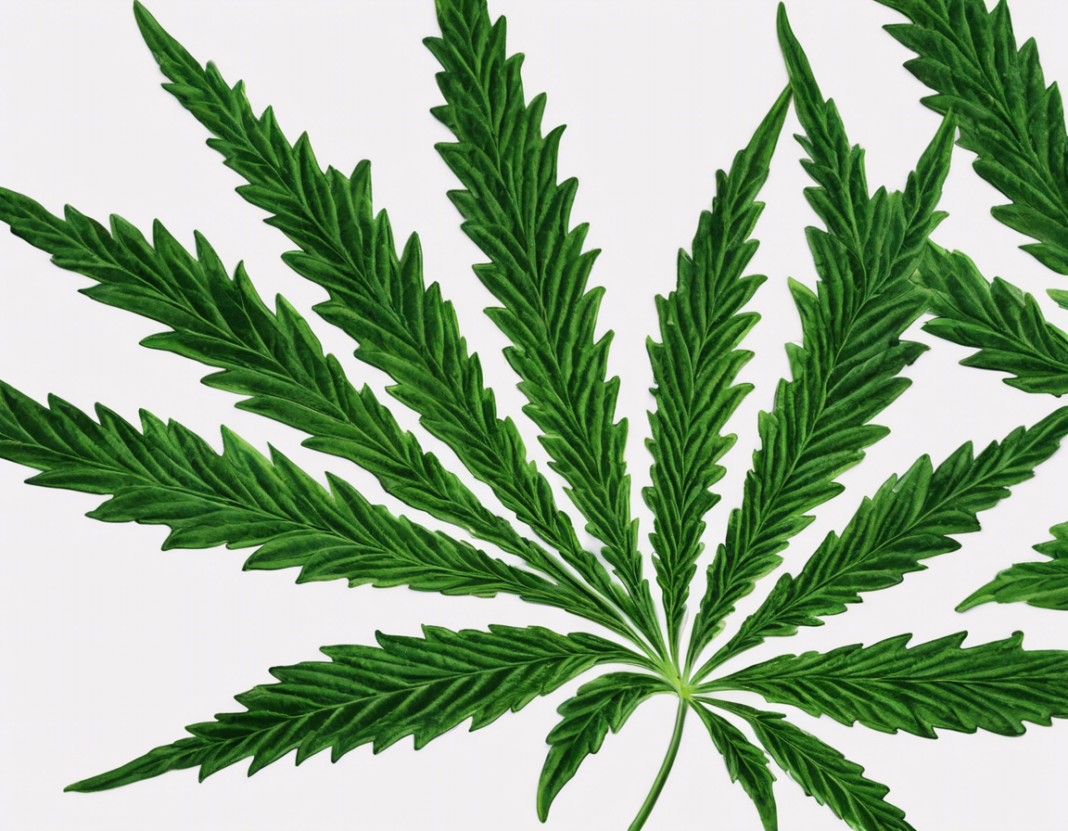Cannabis has been a topic of great interest and debate globally, particularly in recent years. As more research emerges about this versatile plant, people are starting to uncover its various benefits and applications. While cannabis is often associated with its psychoactive effects, driven by the compound THC, the focus of this article will be on the healing properties of the cannabis leaf, especially in relation to the compound CBD.
Understanding Cannabis and its Components
Cannabis is a complex plant that contains over 100 different compounds known as cannabinoids. These cannabinoids interact with the body’s endocannabinoid system, which plays a crucial role in regulating various physiological processes such as mood, appetite, pain, and memory. The two most well-known cannabinoids found in cannabis are THC (tetrahydrocannabinol) and CBD (cannabidiol).
- THC (Tetrahydrocannabinol): This is the primary psychoactive compound in cannabis, responsible for the “high” commonly associated with marijuana use.
- CBD (Cannabidiol): Unlike THC, CBD is non-psychoactive and has gained significant attention for its potential therapeutic benefits.
The Therapeutic Benefits of CBD
CBD has been the subject of numerous scientific studies exploring its potential for various health conditions. Some of the key benefits associated with CBD include:
1. Pain Relief
CBD is known for its analgesic properties and has been used to manage both acute and chronic pain. It interacts with neurotransmitters in the brain to reduce pain perception without causing the euphoric effects associated with THC.
2. Anxiety and Depression
CBD has shown promise in alleviating symptoms of anxiety and depression. It interacts with serotonin receptors in the brain, which are involved in regulating mood and social behavior.
3. Neuroprotective Properties
Studies suggest that CBD may have neuroprotective properties, potentially benefiting those with neurological disorders such as epilepsy, multiple sclerosis, and Parkinson’s disease.
4. Anti-Inflammatory Effects
Inflammation is at the root of many chronic conditions, and CBD’s anti-inflammatory properties make it a promising candidate for conditions such as arthritis, irritable bowel syndrome, and even acne.
5. Cancer Symptoms and Treatment Side Effects
CBD has been studied for its potential to alleviate cancer-related symptoms such as pain, nausea, and vomiting. Additionally, some research suggests that CBD may enhance the effectiveness of certain cancer treatments.
Different Ways to Consume CBD from the Cannabis Leaf
There are various methods of consuming CBD, each offering its unique benefits and considerations:
1. CBD Oil/Tinctures
CBD oil is one of the most popular and versatile forms of consuming CBD. It can be taken orally or sublingually (under the tongue) for faster absorption.
2. CBD Edibles
CBD-infused edibles, such as gummies or chocolates, provide a convenient and discreet way to consume CBD. However, they may have a delayed onset of effects due to digestion.
3. CBD Topicals
CBD-infused creams, balms, and lotions are applied directly to the skin and are commonly used for localized pain relief and skincare.
4. CBD Capsules
CBD capsules offer a precise and convenient way to consume CBD, similar to taking a regular supplement.
5. CBD Vaping
Vaping CBD involves inhaling vapors produced by a CBD vape pen or device. This method allows for quick absorption but may have potential risks associated with vaping.
Potential Risks and Considerations
While CBD is generally considered safe for most people, there are some risks and considerations to keep in mind:
- Drug Interactions: CBD may interact with certain medications, so it’s essential to consult with a healthcare provider before starting CBD if you are on medication.
- Quality and Purity: It’s crucial to choose high-quality CBD products from reputable sources to ensure safety and effectiveness.
- Dosage: Finding the right dosage of CBD for individual needs may require some trial and observation.
- Legal Status: The legality of CBD products varies by region, so it’s essential to be aware of local regulations.
Frequently Asked Questions (FAQs) About CBD and the Cannabis Leaf
1. Is CBD Legal Everywhere?
While CBD derived from hemp containing less than 0.3% THC is federally legal in the United States, the legal status of CBD varies by country. It’s essential to check local regulations before purchasing or using CBD products.
2. Can CBD Get You High?
Unlike THC, CBD is non-psychoactive and does not produce the euphoric effects commonly associated with marijuana use. It’s safe to use CBD without fear of getting high.
3. How Long Does it Take for CBD to Work?
The onset of effects can vary depending on the method of consumption. Sublingual application typically results in quicker effects compared to edibles, which have a delayed onset due to digestion.
4. Can You Overdose on CBD?
It’s extremely rare to overdose on CBD as it is well-tolerated by most people. However, taking excessive amounts may lead to unwanted side effects such as drowsiness or gastrointestinal issues.
5. Is CBD Safe for Children?
While CBD has shown promise in children with certain medical conditions such as epilepsy, it’s essential to consult with a healthcare provider before giving CBD to children to ensure appropriate dosage and safety.
In conclusion, the cannabis leaf, particularly CBD, offers a wide array of potential health benefits, ranging from pain relief and anxiety management to neuroprotection and anti-inflammatory effects. With ongoing research and a better understanding of its mechanisms, CBD is poised to continue making a significant impact on health and wellness. However, it’s crucial to approach CBD use mindfully, considering individual needs, quality of products, and potential risks.
